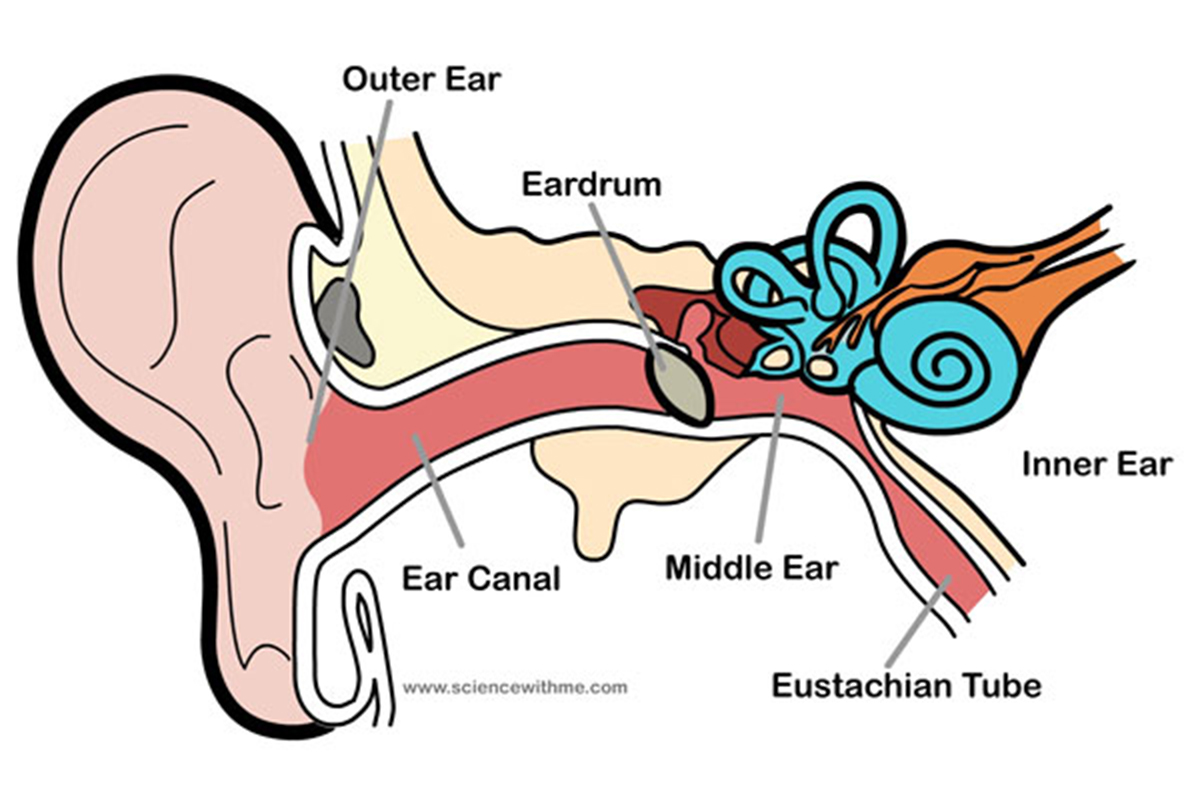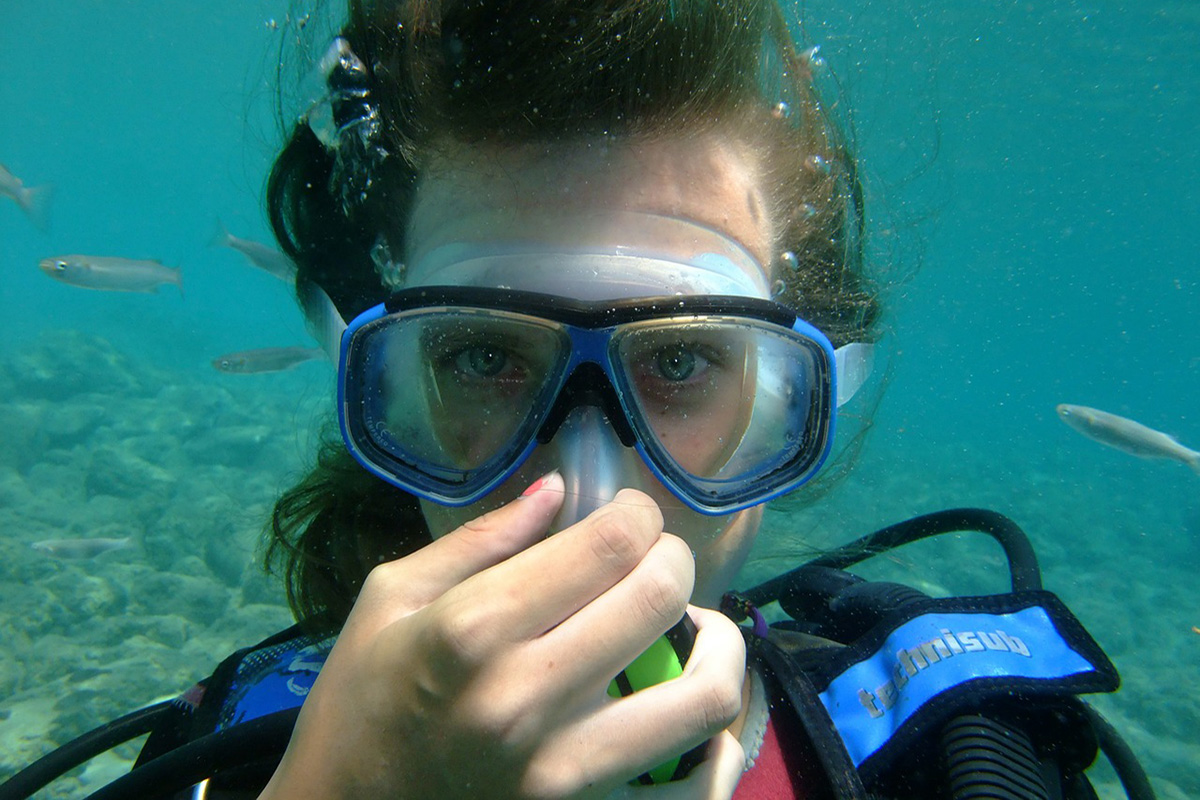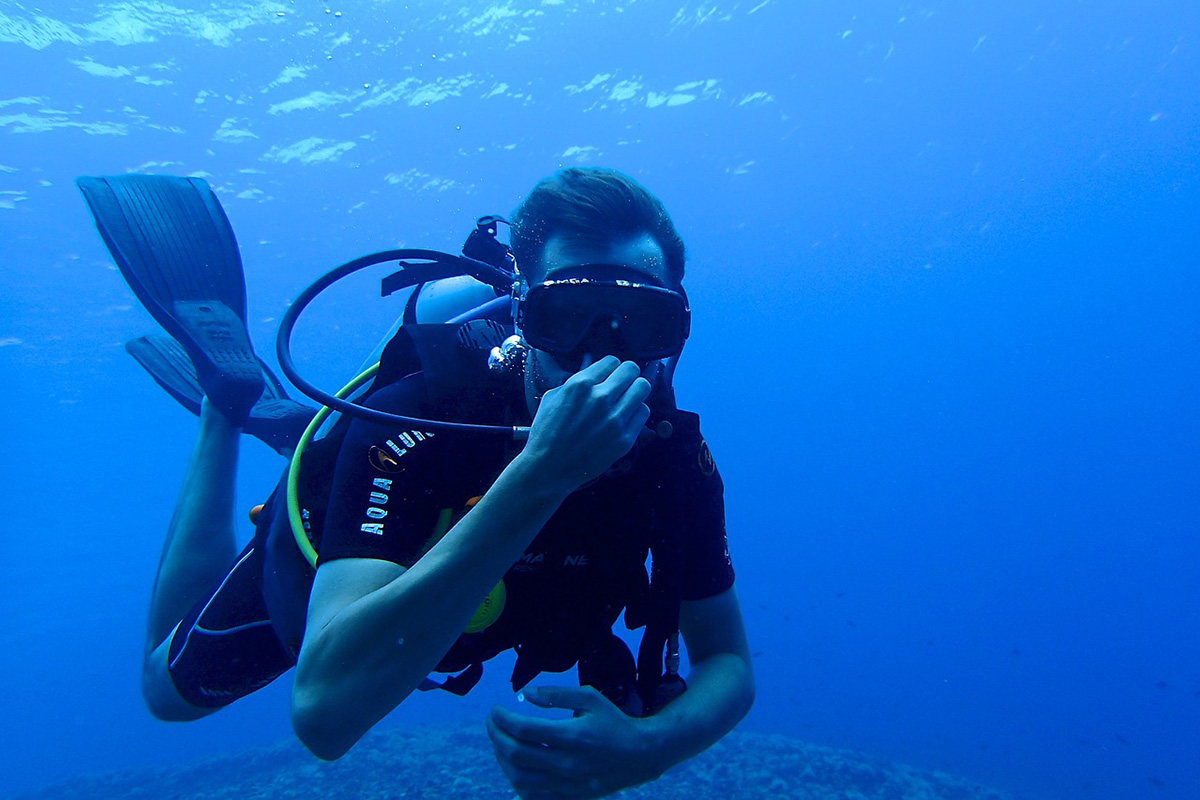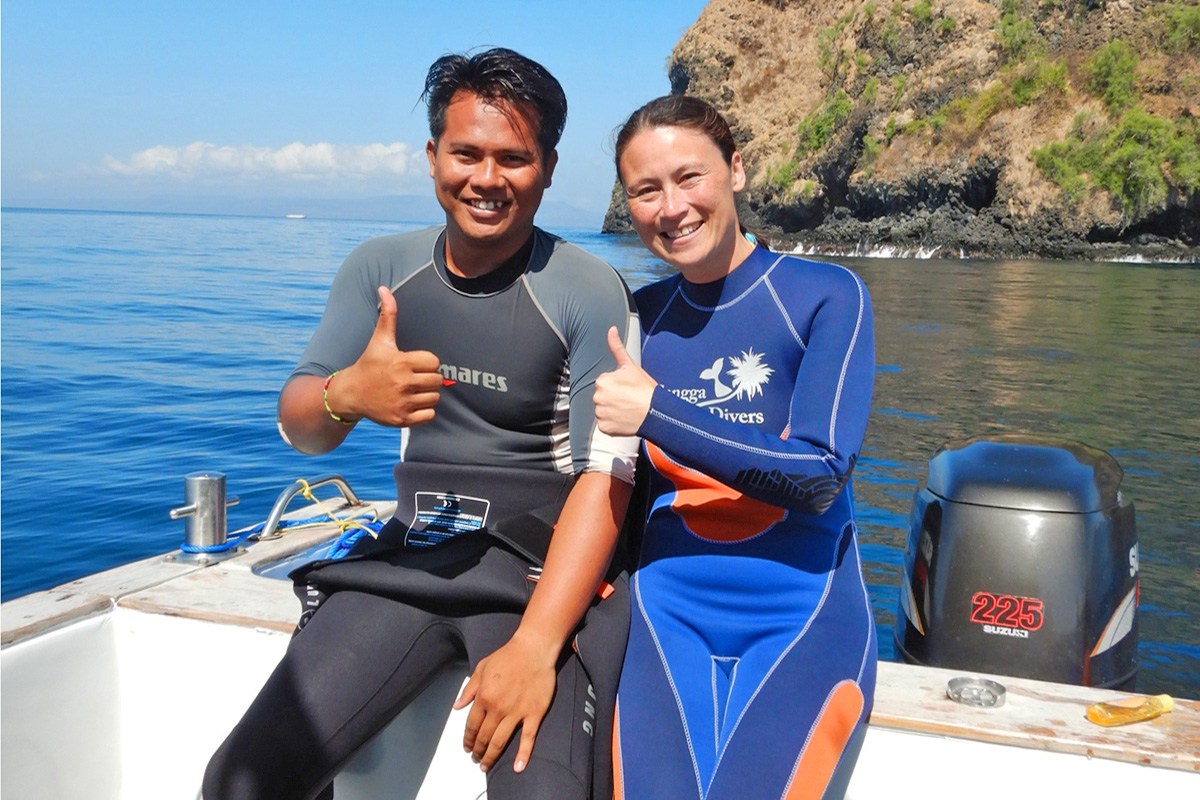Taking Care Of Your Ears While Diving
When you’re diving it’s very important to stay in the best condition you possibly can. Your stamina, strength and lung capacity can help you to dive longer and more comfortably. But how often do you think about keeping your ears healthy? Your ears and sinuses can be damaged while diving if you don’t treat them right, so here are some helpful tips on taking care of your ears while diving.
A little bit about the anatomy of the ear
Most people are aware that the ear is made up of three main parts, the outer ear, the middle ear, and the inner ear. The middle ear is the part of the ear where sound is transmitted, but also the area divers really need to be aware of. The middle ear is where the critically important Eustachian tube is located.
This tube (one on each side) connects the middle ear with the back of the throat and equalizes the air pressure on the inside and outside of the eardrum. The Eustachian tubes aren’t expandable, which isn’t a problem until they are put under the extreme pressures of diving. This is why divers must learn to equalize the pressure in their ears manually.
Techniques for equalizing your ears
The easiest and most common method for equalizing your ears is the Valsalva Maneuver. This is a fancy name for pinching your nose and blowing. This forces air into your Eustachian tubes. If you’re already a diver you’ll know this method well, but did you know you can actually damage your ears if you aren’t blowing correctly?
The aim of this maneuver is to gently push air into your Eustachian tubes. This means using a nice constant stream of air, not a forceful push. If you blow too hard, for too long, or already have a blocked nose, it is surprisingly easy to cause an injury.
The Valsalva Maneuver usually does the trick, but if it doesn’t there are other options:
The Toynbee Maneuver takes a little practice but is basically the same concept as the Valsalva Maneuver. With your nostrils pinched you swallow opening your Eustachian tubes. The way your tongue moves when your nose is closed compresses the air against tubes equalizing the pressure.
Similarly the Frenzel Maneuver compresses air against the openings of the Eustachian tubes. This maneuver entails closing the back of your throat and making the sound of the letter K.
You can also try out some simple movements to clear the pressure in your ears. Wiggling your jaw back and forth, blowing your nose, massaging your jaw and ears, or swallowing a number of times often helps to equalize your ears.
These techniques all take a little getting used to but are fundamental in keeping your ears and sinuses healthy while diving. It’s important to equalize your ears and feel comfortable before you dive too deep. If you need to you should stop and ascend a little to try again to equalize your ears. If you feel pain in your ears something is wrong and you will suffer later if you carry on diving with the pain.
What happens if you don’t equalize your ears?
Pressure on the eardrum is not only uncomfortable but dangerous as well. There are a number of injuries you can sustain to your ears while diving.
Barotrauma
This is a common ear injury for divers and is simply the bulging of the eardrum caused by pressure. Most barotraumas occur from the ears being insufficiently equalized, but you can also sustain this injury if you dive with a blocked nose or sinuses.
In serious cases the middle ear can fill full of fluid and blood. This is very uncomfortable and requires immediate medical attention. If it’s not dealt with quickly it is possible to be left with long-term damage.
Otitis externa
Usually referred to as swimmers ear, this is an infection of the outer ear. Inflammation, pain, itching and redness are symptoms of this infection that can be quite irritating but not usually too serious. Antibiotic eardrops are generally used to treat swimmers ear.
It’s important to clean and properly dry your ears after diving to avoid water sitting in the ear canal and causing bacterial growth. Many divers like to use vinegar or rubbing alcohol or a mix of both to clean their ears.
Healthy Ears = Happy Diving
Ear injuries while diving are very common but can be prevented by following the guidelines outlined above. Practice equalizing your ears and it will become second nature. This alone can prevent most ear traumas.
Do you have any questions about equalizing your ears or other techniques to avoid ear problems? Leave us a comment in the box below and we’d be happy to answer.




